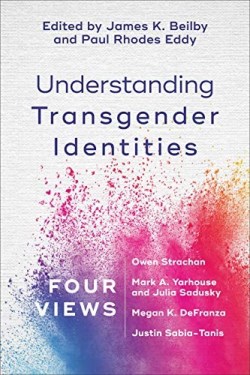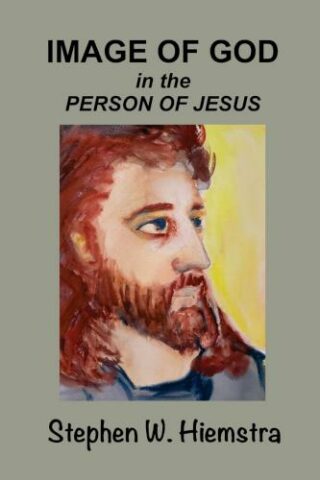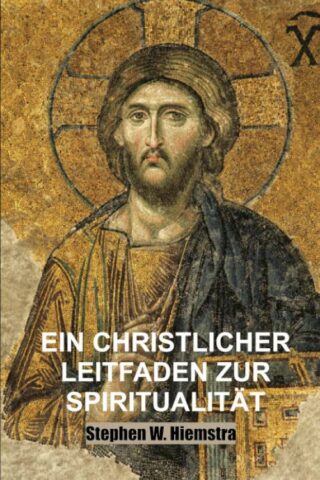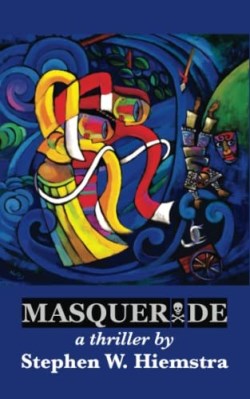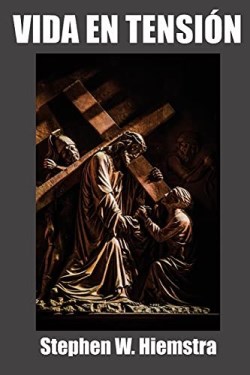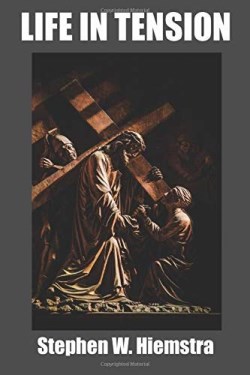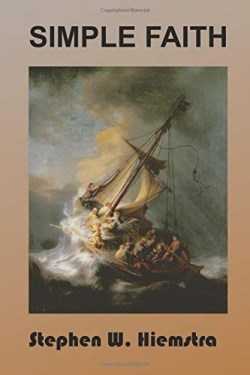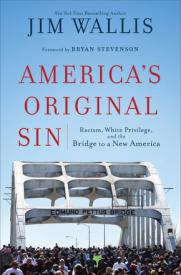Stephen Hiemstra
Showing all 8 resultsSorted by latest
-
Image Of God In The Person Of Jesus
$21.18Our image of God reveals not only God’s character, but our own.
Who is Jesus? Is Jesus more immanent (human) or transcendent (divine)? Because we are created in the image of God and Jesus is divine, the church struggles to define Jesus. This impulse can be a genuine attempt to know God better or it can be an insidious attempt to create God in our own image. This struggle is often tinged with a bit of both.
The Letter to the Church at Thessalonica was likely the first book written in the New Testament. In a literary sense, the implication is that the Apostle Paul is the father of the New Testament. Paul only knew the Risen Christ and, for him, the divinity of Christ was obvious. By contrast, the Gospels that record the humanity of Christ were written almost a generation later. Thus, the transcendence problem facing postmodern people that fixates on the humanity of Christ is relatively new.
My recent book, Image and Illumination (2023), asked the question-What does it mean to be created in the image of God?- focused on Christian anthropology. Embedded in this question is the metaphysical question: Who is God? The New Testament addresses this question with three pictures of God: The person of Jesus, Jesus’ teaching about God the Father in the parables, and the founding of the church on Pentecost by the Holy Spirit. In this book, I focus on the Image of God in the Person of Jesus.
Hear the Words; Walk the Steps; Experience the Joy!
Add to cartin stock within 3-5 days of online purchase
-
Christma In Havana
$16.18A T2Pneuma Publishers LLC Title
How do you find love when present loyalties are divided and the past screams for attention?
Luke Stevens’ new job as a CIA agent demands attention as he eulogizes his ex-wife and vows to move beyond grief. Ruth Chu’s a new life as an American law student busies her days, while her debt to North Korean intelligence haunts her nights. In the midst of an international crisis, can they experience Christmas joy together?
Add to cartin stock within 3-5 days of online purchase
-
Ein Christlicher Leitfaden Zur – (Other Language)
$21.58A T2Pneuma Publishers LLC Title
Spiritualitat ist gelebter Glaube ob im Gebet, in der Andacht, oder in der Begegnung mit unseren Mitmenschen. Dabei verleiht unser Glaube unserer Spiritualitat eine Struktur, ahnlich wie die Knochen der Haut, die sich uber sie erstreckt, eine Struktur geben.
Christliche Spiritualitat beginnt bei Gott, nicht bei uns.
Die folgenden Seiten beleuchten die christliche Spiritualitat im Kontext von taglichen Andachten. Zu jedem Thema gibt es biblische Textstellen, Reflexion, Gebet, und Diskussionsfragen. Wo es angebracht ist, werden Hinweise fur weitere Studien angeboten. Die ersten vier Kapitel (Einfuhrung, das Apostolische Glaubensbekenntnis, das Vaterunser, und die Zehn Gebote) umfassen vierzig Tage und eignen sich daher zum Studium wahrend der Fastenzeit.
Die gesamte Studie umfasst funfzig Tage, und kann an Ostern begonnen und bis Pfingsten fortgefuhrt werden.
Hore die Worte; gehe die Schritte; erlebe die Freude!
Add to cartin stock within 3-5 days of online purchase
-
Masquerade : A Thriller
$21.58What happens when an online date goes horribly wrong?
Luke Stevens saves the day and pays the ultimate price, but U.S. relations with China preclude him from dying just yet. The CIA recruits his father, the divorced Pastor Phil Stevens, to masquerade as his son and flush out the terrorists. Can he remain faithful to his marriage vows in the midst of deception, temptation, and betrayal? Can he find love again?
Add to cartin stock within 3-5 days of online purchase
-
Vida En Tension – (Spanish)
$16.95A T2Pneuma Publishers LLC Title
Cuando Dios llega en nuestras vidas, cambiamos.
Nuestra nueva identidad en Cristo entra en tension con nuestra vieja identidad en nosotros mismos cuando el Espiritu Santo obra en nuestros corazones y mentes. Esta tension surge entre quienes eramos y para quien Dios nos creo, entre nosotros y Dios, y entre nosotros y quienes nos rodean. El apostol Pablo llama santificacion a la obra del Espiritu Santo en nuestra vida.
Vida en Tension refleja sobre las Bienaventuranzas de Jesus en el contexto de las Escrituras. Las Bienaventuranzas sirven como introduccion al Sermon del Monte y exponen las prioridades de Jesus al ensear a sus discipulos. Debido a que el sermon sirve como una especie de servicio de ordenacion para los apostoles, no se puede exagerar la importancia de las Bienaventuranzas para la iglesia primitiva, la espiritualidad cristiana y el discipulado de hoy.
Vida en Tension se organiza como una devocional. Cada capitulo ofrece una reflexion, una oracion y preguntas de discusion. Los capitulos estan organizados en torno a las nueve Bienaventuranzas de Mateo.
Escuche las palabras; Camine los pasos; !Experimenta la goza!
Las palabras de llave para este libro incluyen: Bienaventuranza, cristianismo, espiritualidad, Jesus, Bible, devocion, y fe.
Add to cartin stock within 3-5 days of online purchase
-
Life In Tension (Revised)
$28.25A T2Pneuma Publishers LLC Title
When God comes into our lives, we change.
Our new identity in Christ comes into tension with our old identity in ourselves as the Holy Spirit works in our hearts and minds. This tension arises between who we were and who God created us to be, between us and God, and between us and those around us. The Apostle Paul calls the work of the Holy Spirit in our lives sanctification.
Life in Tension reflects on Jesus’ Beatitudes in the context of scripture. The Beatitudes serve as an introduction to the Sermon on the Mount and lay out Jesus’ priorities in teaching his disciples. Because the sermon serves as a kind of ordination service for the Apostles, the importance of the Beatitudes for the early church, Christian spirituality, and discipleship today cannot be overstated.
Life in Tension is organized as a devotional. Each chapter offers a reflection, a prayer, and discussion questions. Chapters are organized around the nine Beatitudes in Matthew.
This revised edition facilitates ease of reading. It has an updated cover, fewer Greek and Hebrew references, and fewer footnotes than the original edition. Some editing to enhance clarity has also been done.
Hear the words; Walk the steps; Experience the joy!
Key words for this book include: Beatitudes, Christianity, spirituality, Jesus, Bible, devotion, and faith.
Add to cartin stock within 3-5 days of online purchase
-
Living In Christ
$28.25A T2Pneuma Publishers LLC Title
Our journey in Christian ethics starts with God in whose image we are created. Creation begins with birth and continues as we mature. Our character matures, shaped by the example of Christ under the mentorship of the Holy Spirit through the family and the church. Christian leaders reach full maturity once they able to mentor others-we are blessed to be a blessing.Living in Christ focuses on explaining, not justifying, Christian ethics. At a time and in a place where people scoff at developing a theological understanding of their faith and refuse to teach Christian morality, ethics is almost a lost art. At the heart of the ethical dilemma is a tension between theological principles that can only be resolved the guidance of the Holy Spirit. How do you practice forgiveness for sinners who refuse to confess their sin and force you to bear its consequences? In this context, ethics is less a philosophical discipline that a recognition of our own limitations as Christians and the need for divine intervention.Ethical thought and action always involve interpretation under the guidance of the Holy Spirit. It is thus ironic that a book on Christian living should have an outward focus on God rather than an inward focus on what to do and not do. This interpretative element colors how we view character formation, the community of faith, leadership, and the many special issues that arise in daily life.Hear the words; walk the steps; experience the joy!
Add to cartin stock within 3-5 days of online purchase
-
Simple Faith : Something Worth Living For
$28.25A T2Pneuma Publishers LLC Title
How do we know what we know? This question challenges the nature of information, how we learn, decision making, who we are, and who this God is that we worship. If this challenge appears optional; it is not–our post-Christian culture questions every assumption. Simple Faith examines these questions and discusses implications for faith and life.
An important implication of this study is that faith plays a critical role into how we think, learn, and make decisions in the context of limited resources and an uncertain future. Even scientific inquiry requires faith, which normally gets hidden in untested assumptions and presumptions about what is interesting to investigate. Often the critical arguments driving our decisions are not cold hard facts, but the stories that we tell in the midst of complex decision environments.
The timing of this inquiry is critical. The movement from modern to postmodern thinking has upended most institutions, but especially the Christian church. The separation of heart and mind, which characterizes modern thinking, eroded faith leaving the church in a weak position to adapt to the rapid changes accompanying postmodernism. Ironically, postmodern thinking that values storytelling favors Christian faith because the Gospel of Jesus Christ is the best story around.
Add to cartin stock within 3-5 days of online purchase



